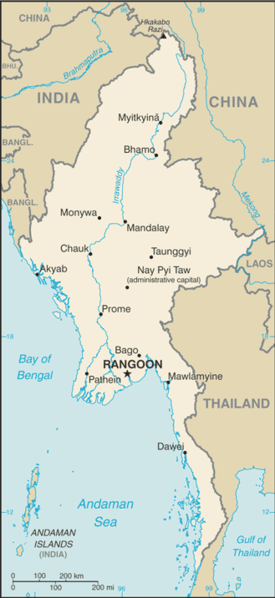An outbreak of Japanese encephalitis (JE) has killed 19 people, including four children in Myanmar this year to date prompting health officials to begin a vaccination campaign in the most needed areas, according to a Myanmar Times report.

Due to the cost of the vaccine and limited supplies, the Department of Health announced it would begin the campaign of vaccinating 40,000 from the mosquito borne virus focusing on Rakhine and northern Shan states.
Japanese encephalitis (JE) is the most important cause of viral encephalitis in Asia. About 68,000 clinical cases are reported annually. It usually occurs in rural or agricultural areas, often associated with rice farming.
JE virus is transmitted to humans through the bite of infected Culex species mosquitoes, particularly Culex tritaeniorhynchus.
Most JE virus infections are mild (fever and headache) or without apparent symptoms, but approximately 1 in 250 infections results in severe disease characterized by rapid onset of high fever, headache, neck stiffness, disorientation, coma, seizures, spastic paralysis and death. The case-fatality rate can be as high as 30% among those with disease symptoms.
There is a protective vaccine against Japanese encephalitis virus.
Related:


2 thoughts on “Myanmar: Japanese encephalitis kills 19 this year, 40,000 to be vaccinated”